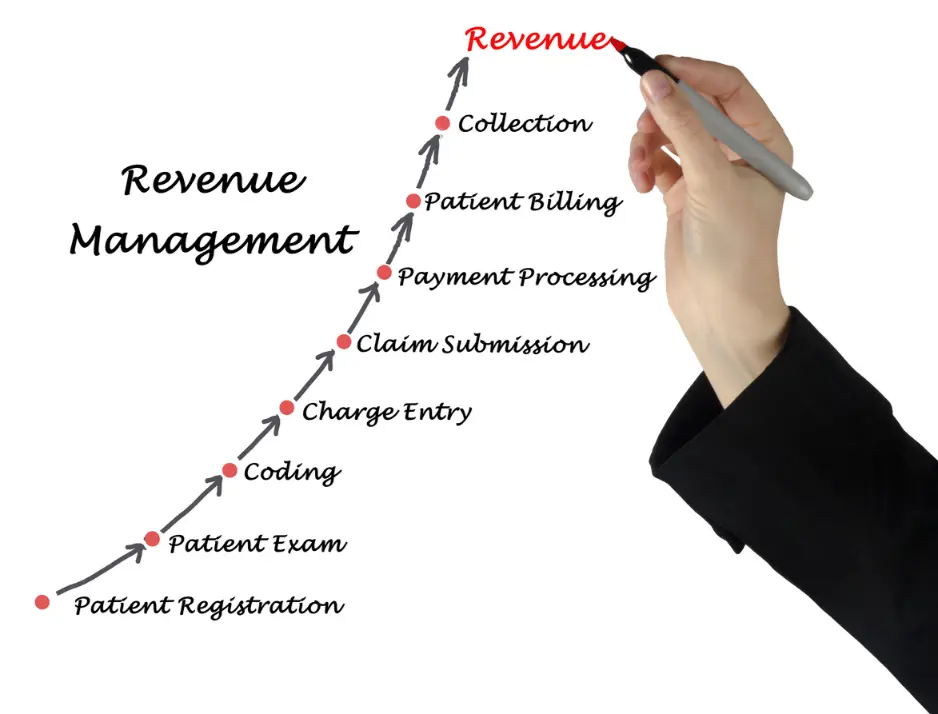Medical billing is a complex and crucial aspect of the healthcare industry. It involves the process of submitting and following up on claims with health insurance companies to receive payment for services rendered by healthcare providers. An efficient and effective revenue cycle management (RCM) system is essential for healthcare organizations to optimize their financial performance and ensure they receive the reimbursements they deserve.

Understanding Revenue Cycle Management (RCM)
Revenue Cycle Management (RCM) refers to the strategic process of managing the financial transactions of a healthcare organization related to patient care. It encompasses various stages, including patient registration, insurance verification, charge capture, claims submission, payment posting, denial management, and patient billing. The primary goal of RCM is to streamline these processes to maximize revenue while minimizing administrative burdens and ensuring compliance with regulatory requirements.
The Role of RCM in Medical Billing
Patient Registration and Insurance Verification:
● RCM starts at the very beginning of a patient’s interaction with a healthcare facility. Proper patient registration and insurance verification are crucial for accurate billing.
● RCM systems help verify a patient’s insurance coverage, co-pays, deductibles, and eligibility, reducing the risk of claim denials due to inaccurate information.
Charge Capture:
● Accurate charge capture is essential to ensure that all services provided are properly documented and billed.
● RCM systems help healthcare providers accurately capture charges for services, procedures, and supplies, reducing the risk of revenue leakage.
Claims Submission:
● Submitting claims to insurance companies is a complex process that requires adherence to specific coding and billing guidelines.
● RCM systems use coding and billing rules to generate accurate claims, reducing the likelihood of denials and delays in payment.
Payment Posting:
● Efficient payment posting is crucial for reconciling payments received from insurance companies and patients.
● RCM systems automate payment posting, reducing manual errors and ensuring accurate accounting of revenue.
Denial Management:
● Claim denials can result in significant revenue loss if not addressed promptly and effectively.
● RCM systems help identify and resolve denials, ensuring that healthcare organizations receive the payments they are entitled to.
Patient Billing:
● RCM systems also facilitate patient billing by generating clear and easy-to-understand statements.
● This helps patients understand their financial responsibilities and encourages prompt payment, improving the organization’s cash flow.
Benefits of Effective RCM
Increased Revenue: An efficient RCM process can lead to faster reimbursements, reduced claim denials, and improved cash flow, ultimately increasing the revenue of healthcare organizations.
Reduced Administrative Costs: Automation and streamlining of processes through RCM can significantly reduce administrative overhead, freeing up resources for patient care.
Improved Patient Experience: Clear and accurate billing statements and better communication regarding financial responsibilities can enhance the patient experience and satisfaction.
Compliance and Risk Mitigation: RCM systems help healthcare organizations stay compliant with ever-changing healthcare regulations, reducing the risk of fines and legal issues.
Revenue Cycle Management is the backbone of medical billing in healthcare organizations. It ensures that healthcare providers are properly compensated for the services they provide, while also enhancing the patient experience and maintaining compliance with healthcare regulations. An effective RCM system can lead to increased revenue, reduced administrative costs, and improved overall financial health for healthcare organizations. In today’s complex healthcare landscape, investing in robust RCM processes and systems is not just important—it’s essential for the success of healthcare practices.
